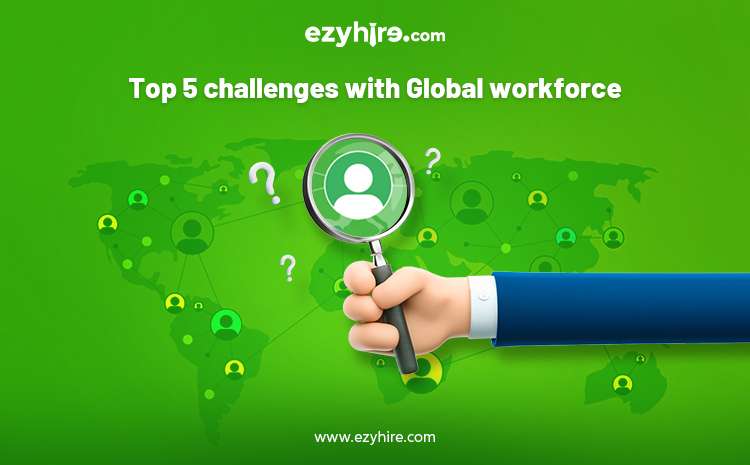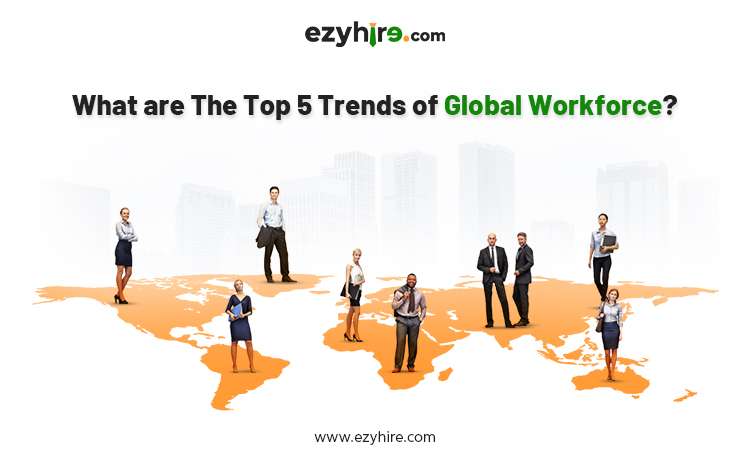Evolution of a Global Workforce
The world is changing, and so is work.
In today’s world, the workforce has evolved to be more globalized than ever before. This means you probably have coworkers in other countries or people working for companies with offices worldwide.
The evolution of work is perhaps the most important topic in today’s world, and it’s never been more relevant than it is now.
What is a global workforce?
The “global workplace” is a term used to describe a workplace that is not limited to the geographical location of employees but includes people from different cultures, countries, and ethnic groups.
Globalization has opened up new possibilities for business owners and managers. It has resulted in a more diverse workforce and business opportunities to expand into other countries.
In this blog post, we’ll take a brief look at the evolution of work and its impact on our world today.
Evolution of the Global Workforce: The Changing Nature of Work
There has been a major shift in how people work in recent years. In some cases, this change is because technology has made it easier for people to work from home or other locations.
In other cases, this change is due to people being able to take advantage of new opportunities such as telecommuting or flexible schedules. Regardless of what’s driving this change, we can be confident that it will continue to evolve in the future as well.
#1: Acquisition of Global Talent
We are living in a world where the workforce is becoming increasingly global. The nature of work has changed—it’s no longer just about being able to be at a place to do your job physically.
There are now more opportunities for companies from around the world to partner with each other, increasing cross-border businesses and collaborations. This evolution allows a company or an organization to tap into a wider pool of talent than ever before.
The key to successfully acquiring global talent is to adopt an inclusive approach. This involves ensuring you’re open to hiring people from different backgrounds, cultures, and genders.
#2: Cost-Effective Acquisition of International Talent
The world has changed dramatically in the last ten years. Companies could previously hire talent by sending out job applications and advertisements in newspapers.
Now, they have access to digital and online tools that help them manage their talent acquisition process. These cost-effective platforms help HR departments streamline recruitment efforts and use resources better.
Establishing new businesses in developing countries improves the quality of life for those who live there by providing employment opportunities for them.
#3: Rise in Cultural Diversity
A diverse workforce is a more productive and profitable one. According to a study by McKinsey, ethnically diverse companies are 29% more profitable than their non-diverse counterparts.
These benefits extend far beyond just the business sphere. When companies embrace cultural diversity, they see higher engagement and motivation, leading to higher productivity levels.
In the age of globalization, a diverse workforce is necessary to retain your competitive advantage. A global workforce provides you with a pool of talent that can be accessed from anywhere and mobilized at any time. This can help make things more innovative and creative for your business.
#4: Bringing Generations Together
The global workforce is evolving. We’re seeing a new generation of workers bring their perspectives and innovations to the table and see what that means for our business.
There are four generations in the workforce:
- Baby Boomers (born between 1946 and 1964),
- Generation X (1964–1981),
- Millennials (1982-2000) and
- Generation Z (2001–present)
This new approach has allowed companies across industries like technology and manufacturing to hire talent worldwide at all levels.
#5: Flexible Work Culture
The global workforce has evolved in such a way that it is now more flexible than ever before. People can work from anywhere in the world and be productive as the world becomes more interconnected.
In the past, employees needed to be able to conform to a single set of expectations, whether those expectations were about dress code or work hours. But as workers have become more mobile and flexible, it’s become easier for them to develop their working style.
This means that employees can not only choose how they want to work—they also get paid based on those choices. This allows companies to be more competitive by offering employees flexible schedules and pay structures instead of forcing them into rigid scheduling structures that might not fit their lifestyles or preferences.
Wrapping It Up
While the effects of globalization have been nothing short of transformative, there have been some major downsides that must be addressed. Like the environment, the economy is intertwined with all aspects of business and society.
We cannot afford to be careless with our decisions, especially when they involve the millions of people we depend on to produce our goods and services. Businesses must now act as stewards for their workers and their surrounding environment to maximize the potential benefits of globalization while minimizing the collateral damage.
How Can Ezyhire Assist?
From the standard nine-to-five to working from home to the rise of remote teams, there are more ways to do your job than ever before.
We know that hiring the right employees can be challenging. But with our global talent marketplace at your fingertips, you can easily find qualified candidates who are ready to work with you right away. Our platform connects skilled workers worldwide so that you can hire a top performer for your organization.
Tell us how we can help. Talk to Our Experts today!



